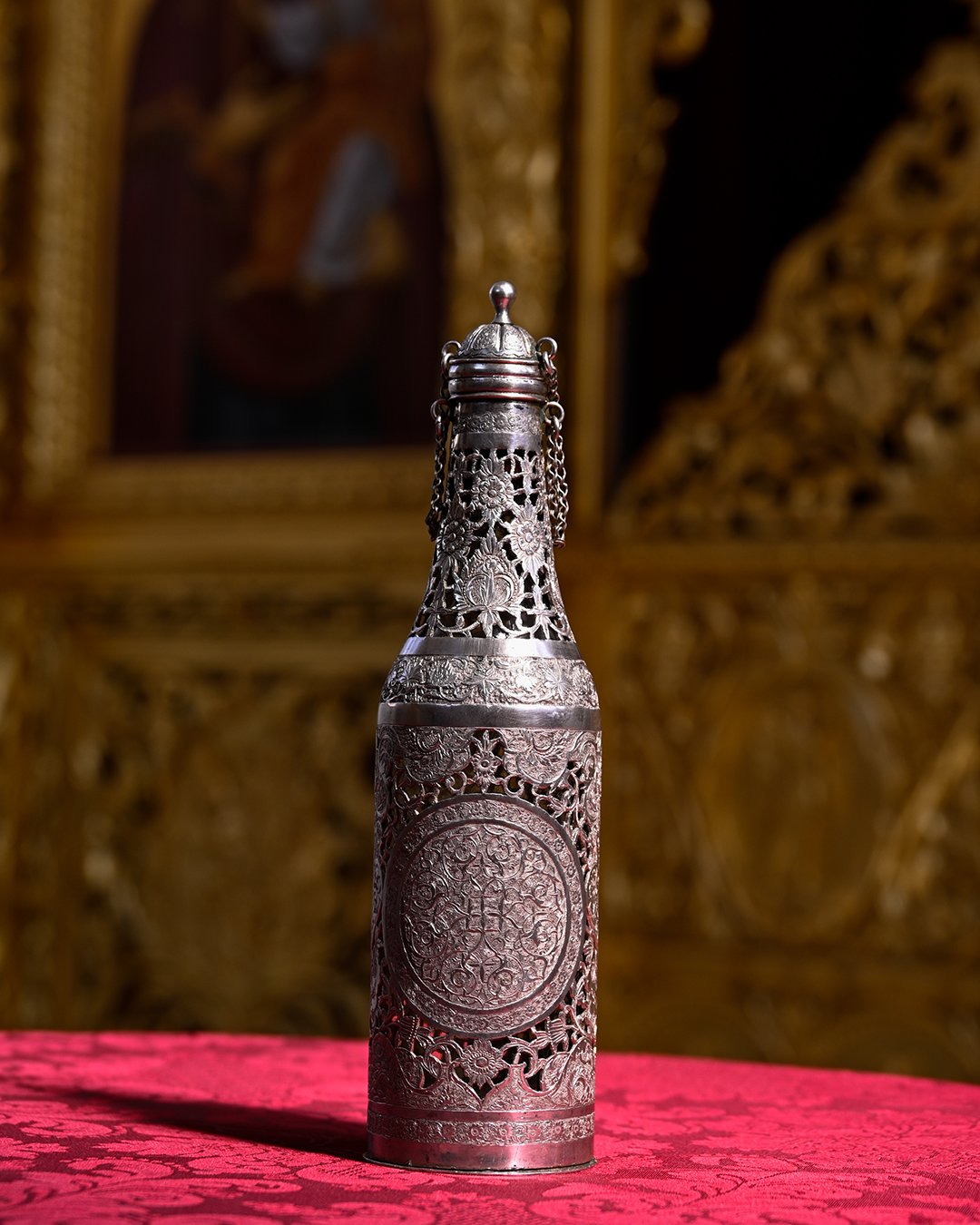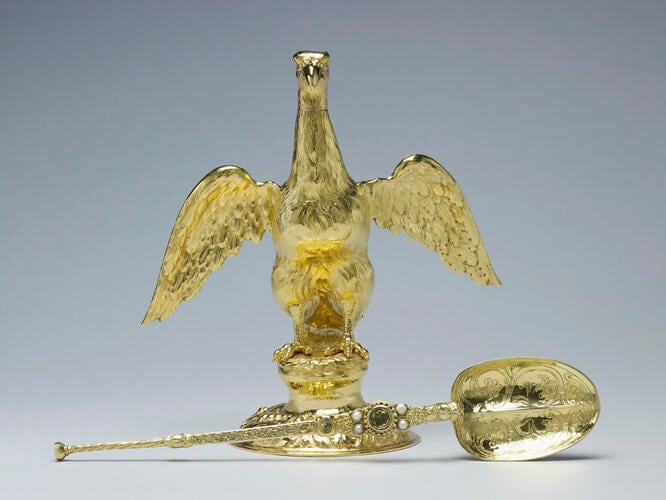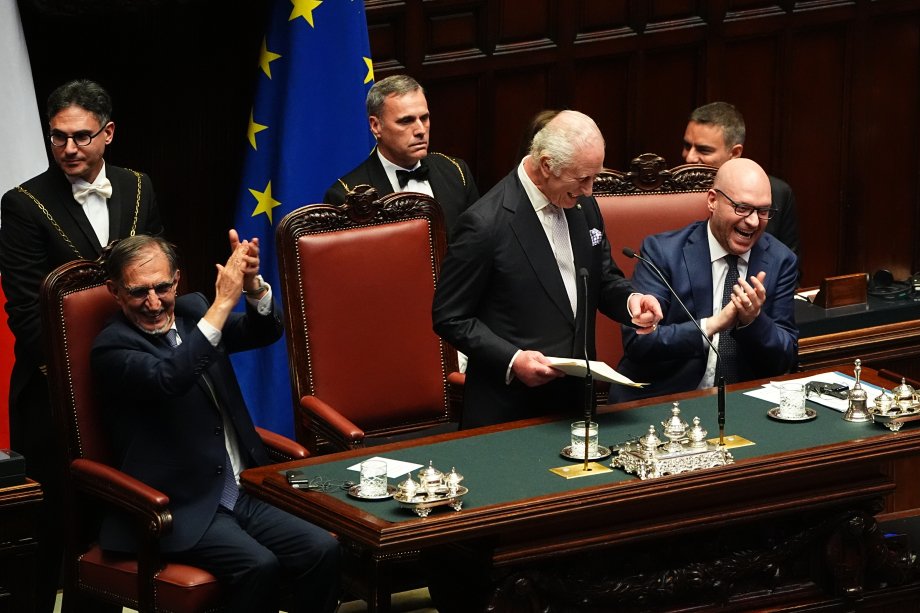One of the most important parts of the coronation service is the anointing. Last night, Buckingham Palace announced that the oil has been made and consecrated, ready for the coronation in May.
The act of anointment dates back to the Old Testament Book of Kings, where the anointing of Solomon as King is described; it is the most sacred moment of the coronation.

The oil for anointment at the coronation has been blessed in Jerusalem (@RoyalFamily)
The Patriarch of Jerusalem and the Anglican Archbishop in Jerusalem performed the blessing at The Church of the Holy Sepulchre in a special ceremony, making the oil sacred.
The chrism oil has been made from olives of the Mount of Olives at the Monastery of Mary Magdalene, and the Monastery of the Ascension, pressed in Bethlehem. Chrism oil, sometimes called myrrh, specifically is a mixture of oil and balsam. This version in particular has been perfumed with sesame, rose, jasmine, cinnamon, neroli, benzoin and amber essential oils, as well as orange blossom.
Using oil from the Holy Land continues a centuries-long tradition for the crowning of British Monarchs. It has been ‘based on’ – understood to mean mixed with the remnants of – the sacred oil used at the coronation of Elizabeth II in 1953, using the same historic formula.

The coronation oil is stored in this ornate bottle after its consecration (@RoyalFamily)
While the location of Jerusalem holds much religious significance for British Monarchs and Heads of the Church of England, there is also a personal connection for the Royal Family. The Monastery of Mary Magdalene is the burial place of Princess Alice of Greece, The King’s grandmother and Prince Philip’s mother. She became a nun in 1949 and requested to be laid to rest here following her death in 1969 at Buckingham Palace.
Princess Alice was named one of the Righteous Among the Nations by Israel’s Holocaust memorial association for her efforts during World War II to harbour Jewish refugees in Nazi-occupied Athens. In 2015, Prince Philip accepted an award on her behalf for her bravery.
Charles has previously visited the site, as has Prince William, as part of tours to the Holy Land.
Both Charles and Camilla will be anointed with the holy oil, touched onto the head, breast and hands. For the coronation itself, the oil will be placed in the the golden eagle Ampulla, part of the Crown Jewels, specifically used to hold the consecrated oil. It is poured via the beak onto the Anointing Spoon for this part of the event.
The Archbishop of Canterbury, who will lead the coronation service said of the blessing: ‘Since beginning the planning for the Coronation, my desire has been for a new Coronation Oil to be produced using olive oil from the Mount of Olives.

The Ampulla will hold the sacred oil for the anointment at the coronation (Royal Collection Trust)
‘This demonstrates the deep historic link between the Coronation, the Bible and the Holy Land. From ancient kings through to the present day, monarchs have been anointed with oil from this sacred place. As we prepare to anoint The King and The Queen Consort, I pray that they would be guided and strengthened by the Holy Spirit.’
The tradition is similar to that of royal christenings: water from the River Jordan is imported to baptise members of the Royal Family.





